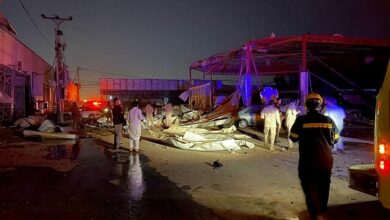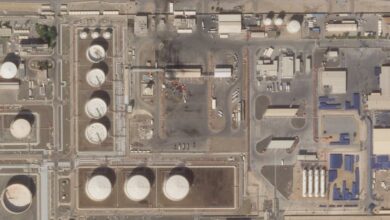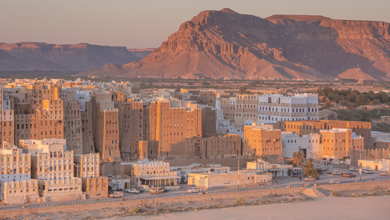
Yemen plans to complain to the U.N. Security Council over what it says are Iran's weapon transfers to Houthi allies fighting the internationally recognized Yemeni government, the foreign minister said on Saturday.
In an interview with Reuters, Abdel-Malek al-Mekhlafi also said he hoped a 72-hour humanitarian ceasefire would take effect "early next week."
Yemen and Saudi Arabia — which intervened in the country in March 2015 to prevent the Houthis and forces loyal to the former president from taking over — blame Shi'ite Iran for supplying weapons to the Houthis.
Tehran views the Houthis, who hail from a Shi'ite sect, as the legitimate authority in Yemen but denies accusations it supplies them with weapons.
The Iranian mission at the U.N. did not immediately respond to a request for comment on the latest accusation.
"There are new weapons coming from Iran," Mekhlafi said in New York where he was attending the annual U.N. gathering of world leaders.
"It is impossible to hide that weapons-smuggling is still taking place from Iran. Some of these weapons have been found on the Saudi-Yemeni border and they are Iranian weapons," he said.
Mekhlafi said his government was in the process of filing a complaint to the Security Council, with evidence including documents and pictures.
U.N.-sponsored talks to try to end 18 months of fighting that has killed at least 10,000 people collapsed last month.
The foreign minister said President Abd Rabbu Mansour Hadi had met with U.S. and U.N. officials this week and had agreed in principle to a 72-hour ceasefire.
"He (Hadi) asked that the ceasefire be taken advantage of by lifting the unjust siege of Taiz and for food to enter simultaneously," Mekhlafi said, referring to a city in the country's highlands. The government was waiting for the U.N. envoy to speak with the Houthi side to secure those guarantees, he added.
New Central Bank
Asked about international criticism over the civilian casualties caused by the Saudi-led coalition, Mekhlafi said the issue was politicized and exaggerated.
"We do not say that there are no victims in this war. This is a war, it's not a war of angels, it's a war of people. There are many victims and there are mistakes and this is normal," he said, adding that less attention was given to attacks against civilians by the Houthi side.
The United Nations said last month that 3,799 civilians have been killed in the conflict, with air strikes by the Saudi-led coalition responsible for 60 percent of deaths.
Saudi Arabia has said it is committed to international humanitarian law.
Mekhlafi defended the Yemeni president's move to appoint a new central bank governor and move the bank's headquarters to Aden, where Hadi's government is based.
"This was a necessary step … Even our allies, and the international institutions, have reached the conclusion that it was the necessary last step to save the Yemeni economy," he said.
He said the central bank in Houthi-controlled Sanaa was down to its last $700 million in foreign reserves and there was no longer any local currency liquidity. The bank also had not paid the interest on external debt since May, or public sector salaries for the last two months.
The government in Aden has accused the Houthis of squandering some $4 billion on the war effort from central bank reserves. The Houthis said the funds were used to finance imports of food and medicine.
Mekhlafi said the government had made clear to the International Monetary Fund, World Bank, and American and British officials that the new central bank would pay public sector salaries for everyone, including those in areas under Houthi control. He said the bank's new administration was in the process of agreeing with a Russian company to print additional Yemeni notes.




